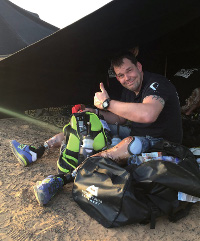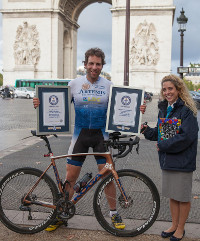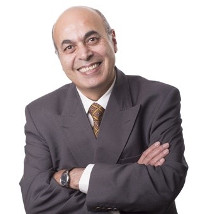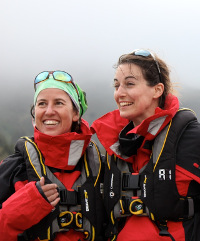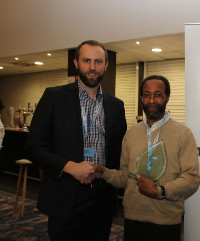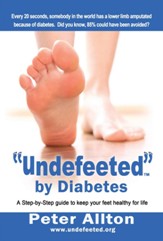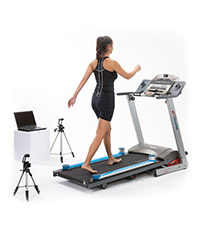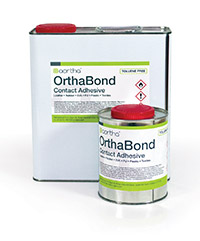-
British physio helps smash record
British physiotherapist Laura Penhaul is pretty good at breaking records.
-
Queen honours pioneering Professor
Professor Mir Saeed Zahedi was named in this year’s Queen’s Birthday Honours List to receive a Knighthood for his outstanding services to Innovation and Engineering in the field of rehabilitation.
-
The Marathon Foot Doctor
Our feet are critical to our general health, wellbeing and mobility – whatever our age – but they are one of the most neglected parts of our body.
-
The cricketer’s physio
James Pipe is First Team Physio at Nottinghamshire County Cricket Club. Here he tells Lucy Mason about the importance of his role in keeping everyone from the Academy players to the likes of fast bowlers Stuart Broad and Jake Ball and batsman Alex Hales fit to play for their county.
-
Physio Rows into Record Books
A documentary film is being made about the four British women who rowed the Pacific to claim their place in history. Read more
-
Valgus foot rife in children in the UAE
Dr Jörg Stöbel, a German Board-qualified Podiatrist who for two decades has been based in the UAE, estimates that as many as 60 per cent of children are suffering from the condition ‘Valgus foot’.
-
The silent burden
Research from the DFA, QUT and the Wound CRC in Australia has suggested that the ‘silent burden’ of foot disease is afflicting one in ten hospital patients and filling nearly 5,000 hospital beds every night.
-
Desert man
Double amputee Duncan Slater conquered the searing heat of the Sahara to become the first double leg amputee to complete The Marathon of the Sands.
-
The fall in podiatry degree applications
Applications for degrees in fields such as podiatry have fallen by almost 20 per cent since last year, with less than half of applications in some institutions.
-
New platform for independent practices
A new online resource has been launched to help healthcare professionals promote their services.
-
UEL – Practical Experience
The University of East London’s School of Health, Sport and Bioscience gives its students a first class preparation for a rewarding career in physiotherapy and podiatry.
-
Technician’s corner
Lloyd Washington, 64, won the Algeos Technician of the Year Award 2017 at this year’s BAPO conference. Here he talks about his 40 years in the industry.
-
Sophie de Oliveira Barata
Sophie de Oliveira Barata’s work is pushing the boundaries of prosthetics. With her striking floral porcelain legs, stereo legs, detachable anatomical limbs and even legs made from Perspex shards, crystal or brass, she transforms the physical appearance of prosthetics into highly stylised pieces of art.
-
A Centre of Excellence
The University of Strathclyde is a leading international technological university. Students travel from as far as Europe, the Middle East and the Far East to train in prosthetics and orthotics science.
Here, Exceed talks to Roy Bowers, Senior Teaching Fellow at the University of Strathclyde. Read more
-
The Podiatry Detectives
Gordon Burrow is one of the UK’s foremost forensic podiatrists specialising in the field of gait analysis. Read more
-
WELCOME TO EXCEED
It has been a busy few months and we have packed the latest issue of Exceed with lots of news for you.
-
Interview // Matthias Roller
Matthias Roller, Owner of Rollerwerk-Medical, talks about how wearable technology is driving patient compliance. Read more
-
Don’t be defeeted
Every 20 seconds, somebody in the world has a lower limb amputated because of diabetes. Did you know, 85 per cent of them could have been avoided? Read more
-
OptoGait proves hit with physios
Innovative gait analysis technology is proving popular with physios across the UK.
Read more -
Aortha adhesives pass SATRA tests with flying colours
Two Aortha adhesives have successfully passed rigorous tests carried out by independent research and testing organisation SATRA. Read more
-
Physiotherapist Sammy Margo looks at cramp
What is cramp and why does it hurt so much?
Cramp is an old French word meaning spasm. It occurs when your muscles suddenly cramp and shorten causing pain, usually in the calf but it can affect the small muscles of the feet too. It is incapacitating.
Cramp can last as little as a few seconds to as long as ten minutes. The severity of the pain can vary and the muscles may feel tender for up to 24 hours after a leg cramp.
What is the cause of cramp?
We don’t know the real cause of cramp although there are lots of hypothesis including a magnesium or salt deficiency, a build-up of potassium or lactic acid in the tissues or just a sudden random tightening of the tissue.
Some people get it in the night, others while they are exercising, standing up for long period of time or sitting at a desk too long. Pregnant women can be susceptible too.
How can you alleviate it?
As a physiotherapist in football I would often run on to the pitch to treat these grown men lying on the floor writhing in absolute agony and needing their legs to be stretch out. In some cases, they had to be carried off the pitch as they couldn’t play on.
To help prevent it, it can help to take a warm bath to relax the muscles before sleep, eat a magnesium-rich banana and avoid too much alcohol, have a massage or just stretch the muscles that most usually cause cramp. Stretches need to be done for a good five minutes at a time and for at least 4 weeks. Staying well hydrated is also a good idea.
GPs may prescribe quinine for people who get painful leg cramps regularly and experience disrupted sleep. The treatment can help to reduce the number and severity of the attacks.
Topical creams rubbed into the leg area can also help.
Sammy Margo was English football’s first female chartered physiotherapist. She has also worked with the England basketball team and the England athletics team.
www.sammymargophysiotherapy.com
We don’t know the real cause of cramp although there are lots of hypothesis including a magnesium or salt deficiency, a build-up of potassium or lactic acid in the tissues or just a sudden random tightening of the tissue.
Some people get it in the night, others while they are exercising, standing up for long period of time or sitting at a desk too long. Pregnant women can be susceptible too.
How can you alleviate it?
As a physiotherapist in football I would often run on to the pitch to treat these grown men lying on the floor writhing in absolute agony and needing their legs to be stretch out. In some cases, they had to be carried off the pitch as they couldn’t play on.
To help prevent it, it can help to take a warm bath to relax the muscles before sleep, eat a magnesium-rich banana and avoid too much alcohol, have a massage or just stretch the muscles that most usually cause cramp. Stretches need to be done for a good five minutes at a time and for at least 4 weeks. Staying well hydrated is also a good idea.
GPs may prescribe quinine for people who get painful leg cramps regularly and experience disrupted sleep. The treatment can help to reduce the number and severity of the attacks.
Topical creams rubbed into the leg area can also help.
Sammy Margo was English football’s first female chartered physiotherapist. She has also worked with the England basketball team and the England athletics team.
www.sammymargophysiotherapy.com
-
Philip Healy of Clinic6 looks at cryotherapy
Podiatrists are frequently asked about treating verrucae. But as their experience is often with limited success, they are reluctant to do this. Is this your experience? Read more
-
Michelle Weddell looks at a bone growth disorder
Osteochondrosis is seen by clinicians working within paediatric and musculoskeletal clinics. Read more
-
Michelle Weddell looks at the problem of Athlete’s foot
ALG Head of Education Michelle Weddell looks at the common problem of Athlete’s foot. Read more
-
Role of acupuncture today
ALG Head of Education Michelle Weddell considers the role of acupuncture in today’s treatment of patients. Read more




